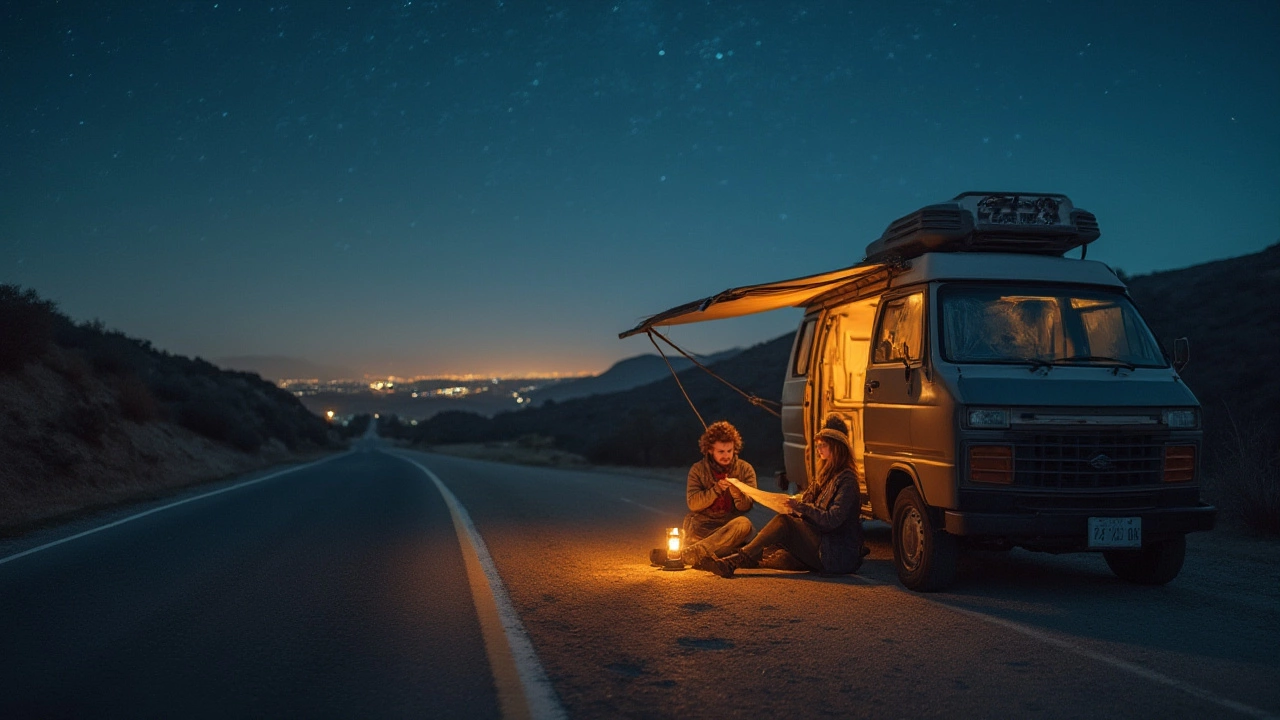California Road Laws for Campers: The Basics You Must Follow
Planning a road trip in a motorhome or campervan? California’s rules can be confusing, but you don’t have to guess. Below you’ll find the most common laws that affect where you can park, sleep, and camp. Knowing these basics saves you from tickets, towing, or a ruined holiday.
Sleeping in Your Vehicle on California Beaches
Most popular beaches forbid overnight stays inside a vehicle. The rule is simple: if a sign says “No Overnight Parking” you must leave before midnight. In places like Santa Monica and Venice, the city enforces a curfew and can issue a $100 fine. Some quieter spots, such as certain parts of Big Sur, allow you to park for a few hours after sunset, but you still need to vacate before sunrise.
To stay safe, look for official parking lots that list “overnight allowed” on the city website or on the park’s signage. If you can’t find that info, assume it’s not allowed and move on. A quick walk to the nearest public restroom or a local shop can give you the exact rules for that beach.
Free Beach Camping and Boondocking Rules
Free beach camping exists, but it’s limited to state‑run campgrounds that specifically mention “free” on the reservation page. Places like Pismo State Beach have a few spots where you can stay for up to 24 hours without paying, as long as you follow trash‑free guidelines and keep noise down.
Boondocking at private businesses such as Walmart is technically allowed if the store manager says it’s fine. However, you must keep your vehicle in a designated parking area, stay for one night only, and never block deliveries. If you’re caught staying longer, the store can call the police and you could be fined.
When you’re on public roads, California law requires you to obey all traffic signs, speed limits, and parking regulations. Never park in a fire lane, handicap spot (unless you have the proper placard), or a no‑parking zone. If you’re unsure, use the state’s “park‑and‑stay” apps or simply ask a local employee.
Another common mistake is forgetting the “tent‑only” rule in many state parks. Some parks let you park a vehicle but ban setting up a tent on the road. If you want a full campsite, you need to reserve a spot in the campground, which usually costs a small nightly fee.
To avoid surprises, write down the address of each stop and check the official park or city website the night before. A quick Google search of “California beach overnight parking rules” usually pulls up the latest notices.
Remember, California police can issue a citation on the spot, and towing fees can run into hundreds of pounds. Getting a ticket not only hurts your budget but also wastes time you could spend exploring the coastline.
Bottom line: respect signs, ask permission when in doubt, and keep your stay short. Follow these tips and you’ll enjoy the freedom of the open road without the hassle of fines.
-
 VIEW POST
VIEW POSTCan You Legally Sleep on the Side of the Road in California? Rules, Risks, and Realities
Jul, 31 2025|0 CommentsCurious if you can legally sleep on the side of the road in California? This article explains laws, risks, and smart tips for road trippers and urban campers.